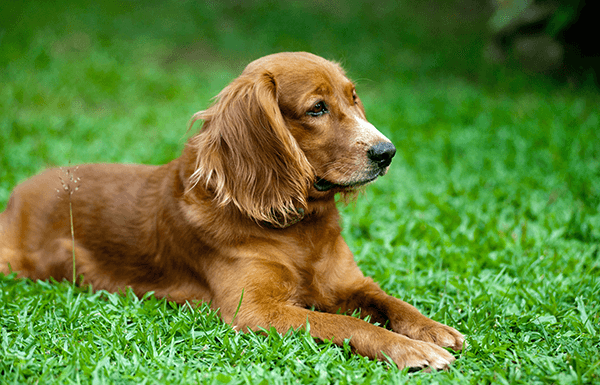Pets can easily steal anyone’s heart. This doesn’t only depend on their irresistible faces and unpredictable antics. Pets can do a lot of things and not every pet owner understands what these are. Excessive Paw Licking is definitely one that perplexes most pet parents!
I spoke to a dog a few days ago whose guardian was complaining that Daisy had licked her paw raw to the point where she had begun to limp. When I asked her what was going on, she told me that her joints had been aching for a while and licking her paws was an attempt to soothe herself of the inflammation and pain she felt in her joints. It turns out, she had a severe case of Arthritis.
Similarly, another dog told me that every time his human left the house to go on long trips or vacations, it would give him an anxiety attack and licking his paws was his way of calming himself down whilst his parents were away. He sent me an image of his human chewing on her finger nails and told me he felt exactly like that!
I remember a cat who was suffering from hair loss telling me that she felt something moving on her skin and that was a cause of stress for her, and that’s why she kept licking her paw to help relieve the anxiety she felt. [Turns out – she had ringworms]
Not all animals are the same. Being a pet owner can be tough as you have to spend time and effort in taking care of your furry friends and it can be challenging at some point. However, once you learn and understand why they act the way they do, you’ll surely begin to understand them a little more.
Dogs will occasionally lick their paws as part of normal self-grooming. But when your dog is constantly licking his paws, or you notice that your dog keeps licking one paw in particular, there may be another explanation.
Here are some reasons why your dog might be biting or licking their paws:
Flakes / Dandruff
Flakes in a dog’s fur may indicate dry skin, which can happen in certain locations or during certain seasons. Moisturizing cream rinses that are made for dogs and supplemental omega-3 oil may improve the itch from dry skin.
Hot Spots
These are local areas of inflammation caused by repetitive licking of a particular area. It is a response to intense itchiness and often happens overnight. There is often hair loss with moist, red, itchy skin.
Bacterial Infection or Yeast
Bacterial infections can develop when the skin is damaged and normal surface bacteria overgrow. The presence of scabs may be combined with redness, flaky skin, and hair loss.
Yeast is another source of infection when allowed to overgrow and contribute to itchiness, odor, and an overall greasy feel to the skin.
Ringworm
This a fungal infection that is easily spread through contact with infected soil or animals. Hair loss and red skin may be seen, but some animals can have ringworm and not show any signs.
Pain
Pain that comes from arthritic joints, ligament sprains, bony growths, or fractures may cause a dog to lick their paws. The pain may be referred from another area that is out of reach. The affected area may be sensitive and appear swollen. Paw licking can just be a reaction to pain. Older animals may be reacting to the pain of arthritis. Watch for limping and stiffer movement.
Boredom
Like molting for birds, dogs chewing their feet may be a result of stress and boredom. Make sure your animal has a toy, time to socialize and places to play, walk or roam around. Anxiety and boredom commonly cause an animal to keep licking their paws. This repetitive motion is soothing for them.
Blisters / Objects stuck in their paw
An object like a thorn or pebble that’s stuck in the paw can result in licking as your dog attempts to dislodge the source of the pain. These are often found between the toes or toe pads and may be hidden under the fur.
Check your dog’s paw carefully for any objects. The irritation should disappear once the source of pain is removed.
Blisters also can develop in areas of friction, such as between the toes. They can be painful, which will encourage a dog to continuously lick their paws.
—
If your pet constantly licks their paws, you’ll want to be careful and protect your their paws from abrasive surfaces such as sand, salt and ice, pavement or anything that can damage their sensitive pads.
Make sure you seek veterinary advice should their symptoms persist.
Are you ready to deepen your connection with your animal friends and learn more about them? An Animal Communication Session can further help you understand why your pet does the things they do!
